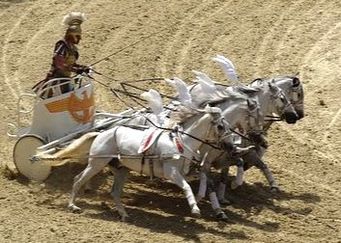
Looking to is much different than looking at. I can look at a magazine. To look at a thing permits my thoughts to be disengaged while my eyes record superficial information like colors, numbers, letters, and features. Looking to is also different from looking upon, which implies a more lingering stare. The eyes rest on an object and thoughts rise to meet the observation. Looking to, however, possesses the qualities of expectancy and trust. It is a gaze that attaches to its object and links the heart, soul and will to its recipient. It is the gaze of the child reaching up to a parent after a fall on the cement driveway. It is a couple’s regard for one another as they state heartfelt wedding vows. Looking to is deep. It exposes vulnerabilities. It’s raw in its trust. It surrenders to hope.
Seeking is looking in action. It’s a gaze that reaches out to know more than what can be casually observed with the eyes. It is a penetrating focus that says, “I see your face, but I know your heart and understand it because I’m intimate with you.” Seeking requires discontentment with status quo. It reaches out from a deep inner motivation. It yearns for more. Seeking inquires, digs deeper, asks questions, and goes out of its way in order to see past obstacles. It searches until it connects with its heart’s desire.
Looking to and seeking, then, is the epitome of relationship. Therein lay Israel’s power. Mine does too. My victories over my adversity come from looking unto and seeking God. Do I gaze upon him with love and adoration? Do I behold him with trust and expectation? Do I inquire after, stretch outward, and yearn for more of Him?
This is the position of victory. Relationship.
Sadly, Israel chose to rely on flesh. It’s easy to do. Especially when the breath of the adversary can be felt as he whispers his taunts. He seems so close, so tangible, and trusting God is a spiritual act. Something much less observable. And in times of difficulty, we tend to feel comforted by things we can see and hear and touch. We like our modern-day chariots and horses. They seem much more sensible, and definitely more visible than prayer and pursuit of God.
Often, it is when I need stillness and closer relationship that I become the most scattered in thought and spread myself too thin. When I need to be looking to and seeking God, my inner drive leans toward the hectic. I become much more inspired with good deeds than God moments. Control is harder to surrender. It is more difficult to look upward rather than inward or outward.
That’s exactly where the enemy wants me, where he wanted Israel. Separated from our strength and help. Distracted. Weak. Alone. Powerless.
So, we turn the tables, remembering that reliance upon the arm of flesh is not the way a child of God wins the battle. Instead of running for cover, we run to Jesus. Instead of chasing after the many things that need to be done, we cut away the tasks, trim our agendas, and carve out more time to be in God’s presence. We cease working, and we worship. At first, it seems pointless. It feels like duties are piling up. Like our brains are full of bees swirling around the “need to’s” and “should have’s” and “ought to’s.” But, instead of giving in, we seek.
“Ready or not, here I come,” we call out to God. Then, amid our search, we discover He’s been right there—in the open--all along. Stronger than the mightiest horseman, greater than the grandest chariot, He stands. With a gaze full of love, He looks upon us--as He waits for us to look to Him.
Tip/Tidbit: When it seems that you have too little time, spend that time with God. Then, watch Him help you handle the personal agenda you set aside for Him.
 RSS Feed
RSS Feed
